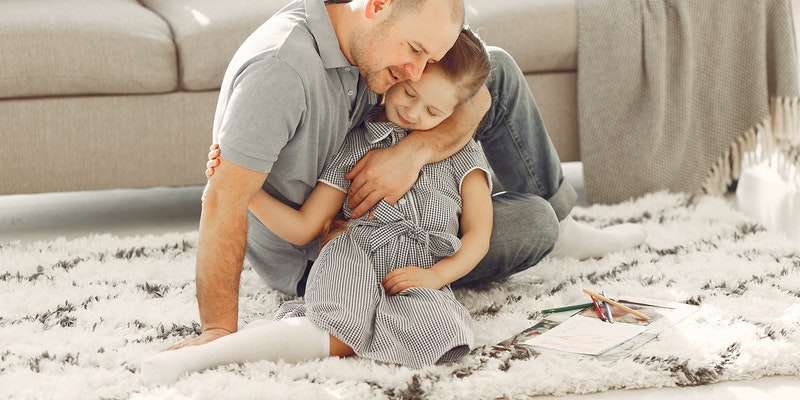
You don’t have to look too far or strain your ears too much before you hear or see someone talking about or something written about the coronavirus COVID-19. In fact, we have been getting daily updates in the news as well as from our Government. So it should go without saying that, if your child is of school age, he/she should be well aware of something being in the air (excuse the pun) by now. This could be in the way of, them being reminded even more now than before, to wash their hands, or an actual discussion taking place with their teacher and the class. As a parent/adult, the situation seems scary enough and you might be wondering how to bring up the epidemic in a way that will be reassuring, and without making your child more worried than they might already be.
Yes, you might even feel they’ve heard about it in school so the teachers have done all the heavy lifting in that respect and all you need to do is to enforce the practice of washing their hands etc. at home. Well, not really – and why is this? Because as a parent, you still owe it to your child to have that discussion with them. There will be a number of ways to approach this but we have listed a few below, that we think might help you:
Tackle the topic head-on
As already stated, it is most likely that your child will have already heard about the virus or seen people wearing face masks, so there would really be no point in sidestepping the issue. In fact, not talking about it could actually cause your child to worry more. This could actually be used as an opportunity to find out what they actually know/have heard and convey it back to you in their own words. This, in turn, would enable you check their level of understanding of the situation and you would be able to answer any questions they might have or clear up any myth (as much as you can) they may have heard. Information is always more credible (in a child’s mind) coming from the parent.
Apply tact in your discussion.
In as much as you’d like your child to be in the know about a situation as serious as the Corona Virus epidemic, you don’t need to overload them with too much of it, as this may be overwhelming. Rather, in the first instance, try to find out what and how much they have heard as well as how they feel. Be open to any questions they might have for you, then fill in the gaps with your answers, as honestly as you can. It’s also ok to not have all the answers, as sometimes, just being there for your child is enough.
Address your own fears first.
The last thing you want to do is try to have the conversation with your child whilst you are still in a state of panic. As you will agree, that would not be the most ideal time to have that chat with your child. Children can sense fear and anxiety in their parents or close ones, so it would be ideal to address your own fears first - take some time to calm down before trying to have a conversation or answer your child’s questions. It would also be helpful to reassure your child and let them know that in spite of what they have been hearing, it shouldn’t be that bad for kids if they stick to the hygiene routine that has been outlined. The most important of these would be to wash their hands with soap and water for 20 seconds (or the length of two “Happy Birthday” songs) when they come in from outside before they eat, and after blowing their nose, coughing, sneezing or using the bathroom.
Keep the discussion ongoing
Let your child know that even though you’ve had the chat with them, you will continue to keep them updated as you learn more and they should also feel free to come to you should they have any questions. This will help to (if anything) tame the elephant in the room and even make it disappear, over time. This is an ongoing situation, so there can be no definite conclusion to the discussions you have with your child. As we receive updates on the situation from the appropriate quarters, we should also keep our children up to speed as well.
Monitor and avoid information overload
Pay attention to how much information about COVID-19 is absorbed by your child from the radio, television or online as too much information on this one topic could very easily lead to anxiety.
Remain calm and reassuring.
Above all, try to maintain a very calm and reassuring disposition and address any concerns your child might have, in the same manner.
At Leaders are Readers, we are committed to continuing with the same level of service we have always provided, especially in these uncertain times. For more info on how we plan to carry on, please click on the following link.